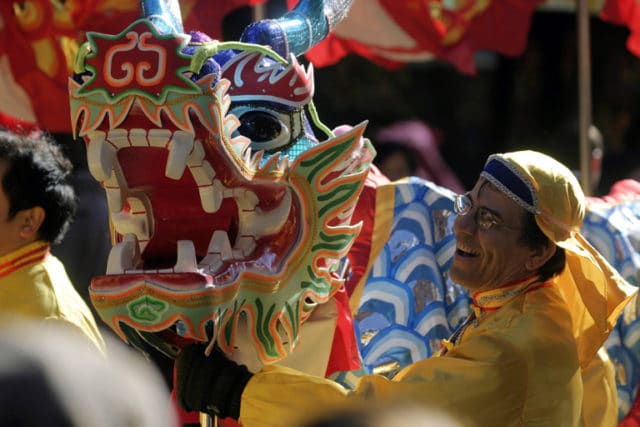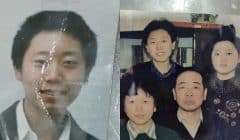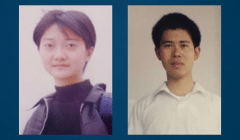Culture Bearers

A colorful dragon dance was part of this 2010 World Falun Dafa Day celebration, at Union Square in New York City. The annual event attracts thousands of spectators.
Ask the typical American what he or she associates with “Chinese culture,” and you’re apt to get a range of replies.
Kung-fu panda. Tea.
Calligraphy. The Great Wall.
Confucius. Mulan.
Yet what’s absent from most everyone’s list is arguably the most dramatic and important embodiment of Chinese culture existing today: Falun Gong.
Few in the West have heard of the spiritual discipline or have much sense for how it is practiced. Fewer still are aware of the fascinating glimpse into the world of classical China that Falun Gong provides, nor of the tragic tale it tells of cultural flux—or chaos—in contemporary China.
Yet in the growing popularity of Falun Gong lies nothing less than the hope of cultural renewal—of a new way of being “Chinese” in the 21st century that is at once rooted in classical tradition yet fully progressive.
Reaching back
While Falun Gong didn’t become known to the Chinese public until 1992, its pedigree reaches back far beyond its years. The most recognizable feature of Falun Gong—its trademark exercises—hark back to the earliest centuries of recorded Chinese history. Its meditative exercises would be readily familiar—in form, if not in detail—to denizens of Bronze-age China.
Since at least the days of Confucius and the Zhou dynasty, the pages of Chinese lore have told of highly accomplished spiritual beings whose bodies, owing to decades of meditative discipline, had been metamorphized into immortal material.
Falun Gong’s core teachings on Truthfulness, Compassion, and Tolerance, meanwhile, are echoed throughout the writings of China’s sages and literati from the earliest centuries.
Its “self-cultivation” program is cut from the same cloth as early Chinese Daoist and Buddhist philosophy, while its orientation is similarly otherworldly—aspiring to a kind of harmony with the cosmos that can only be achieved through virtuous living, physical transformation, and deepening spiritual insight.
In a word, Falun Gong is thoroughly Chinese.
Resonance
This is not to say that Falun Gong is in any way anachronistic in a modern China, however. It’s instead a great fit.
Unabashed consumerism in China has long-since replaced Confucian ideals of rugged simplicity. For most, hopes of lucrative careers have more pull than lofty notions of enlightenment.
Yet Falun Gong proved astoundingly popular with its modern Chinese audience, as witnessed by its explosive growth in 1990s China: in just seven years it grew to have 100 million practitioners.
Something about Falun Gong resonated with people everywhere, of every sort. A typical assemblage of morning park-goers (Falun Gong is often practiced outdoors, in the fresh air) in China would have featured everyone from students and professors to custodial workers, laboratory scientists, and the elderly.
It not only spoke to people, but inspired. People gathered in the parks and at homes of their own initiative, freely, coming together in spontaneous community.
And not just in China, but throughout the world and across the Chinese diaspora.
Renewal
Falun Gong struck a chord deep in the Chinese soul. It was something authentically Chinese. And Chinese, at a time when not much else in China was.
Particularly, Communist Party doctrine.
Falun Gong has provided an alternative mode of being Chinese. A way of being grounded in the noblest values of antiquity—such as truthfulness, compassion, and tolerance—and buttressed by centuries of accumulated wisdom and practice.
It’s program of physical exercises, meanwhile, provides the modern citizen a powerful tool for coping with the stresses and deprivations of a toxic world.
But most importantly, it has made these values and this path compelling—in no way clashing with a modern sensibility or lifestyle, as seen in Falun Gong’s dramatic growth.
In achieving this, Falun Gong has refashioned the possibility of what it means to be “Chinese” in the new millenia, offering a way of being at once forward looking and yet grounded in the strength of a cultural past.
Falun Gong has, in brief, renewed a culture—bringing to life what communism sought to perish.
It is a fantastic opportunity, and one not to be missed.






